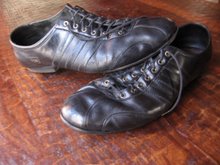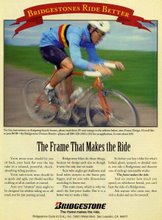
"For of course I am completely an elitist, in the cultural but emphatically not the social sense. I prefer the good to the bad, the articulate to the mumbling, the esthetically developed to the merely primitive, and full to partial consciousness. I love the spectacle of skill, whether it's an expert gardener at work, or a good carpenter chopping dovetails, or someone tying a Bimini hitch that won't slip. I don't think stupid or ill-read people are as good to be with as wise and fully literate ones. I would rather watch a great tennis player than a mediocre one, unless the latter is a friend or a relative. Consequently, most of the human race doesn't matter much to me, outside the normal and necessary frame of courtesy and the obligation to respect human rights. I see no reason to squirm around apologizing for this. ... I hate populist kitsch, no matter how much the demos loves it. To me, it is a form of manufactured tyranny." Robert Hughes, Things I Didn't Learn, pg. 31.
My concurrence with Hughesie's statement is so utterly total, that I feel imboldened to discuss two aspects of the cycling life that have everything to do with skill: bottom brackets and rigid mountain bikes.
Daniel Rebour's drawing above shows the insides of an old style bottom bracket. When I first began wrenching in a bike shop, cartridge bottom brackets were still relatively new. Nowadays they're par for the course, and admittedly they're pretty damn good for the price. But there is something a bit vulgar about them, about their disposability, for you could always service old-school bb's for a long time, and about their ease of installation. Old style bottom brackets required skill. One had to be able to overhaul them properly, lovingly wiping out all the nasty old grease, replacing the ball bearings, checking the cups and cones for pits. Then came the skill of the proper adjustment, finding that sweet spot, to say nothing of being able to get an Italian-thread fixed cup to keep its adjustment. And beyond the skill involved, who doesn't miss the old SunTour greaseguard bb's? Butter, sheer butter.
Now, allow me to veer away from matters mechanical, and on to issues of technical skill. The suspension fork, while totally here to stay and used by many of my very fast friends whom I respect, is a bit lame. The grace and years of muscle memory that a well-executed singletrack ride on a rigid bike display put to shame any ride on a comparable front suspension bike. Full suspension is even worse, unless you're really doing hardcore slalom races. Learning to let the bike roll, letting go, carving through the corners, and swooping in on drops you'd normally not dream of, these are the abilities of the true cycling elitist.
Image: Le monde de Daniel Rebour, 1950-1976

































.jpg)
















































.jpg)



























































































.jpg)




.jpg)








3 comments:
Excellent points, well raised. It's hard not to have nostalgia for components that required active involvement by the user to ensure optimum performance, rather than simply riding until they wear out then replacing them out-right. Still, one doesn't want to fall entirely into the Henri Degrange (or UCI, even) trap of resisting all technical advances, and trying to retain some sort of purity where perhaps none existed.
In the crazy late 80s and then the 90s I had the privilege of partaking in mountain biking as it evolved from a minority sport for unshaven roadies and other miscreants into the phenomena that it is today. The excitement of the first 1" travel suspension forks, or the original XTR groupset, was palpable. I rode stiff forks, short-travel and long-travel forks on hardtails (racing DH on the latter), full-suspension, and switched back and forth between them all.
Watching riders with full-suspension rigs walking around gaps and drop-offs that I'd just ridden on a steel-framed 'stiffy' was a sad day, but seeing where other riders, with consummate skill, have taken the same bikes to is mind boggling.
In amongst the extremes, though, there does seem to be a simpler vibe in there somewhere. One just has to seek it out. And you've obviously found it.
Thanks for the comments, Guy. Much appreciated. Cheers, mate!
Indeed, one must avoid the danger of becoming the dreaded retro-grouch. Though I like much of what he does, this is where Grant Peterson has lost the plot. Case in point, re-brazing brake bosses on to accommodate old-style center-pulls is madness, no matter how well they modulate.
But no, suspension forks aren't bad, but they're a pain to service, and I think they "dumb" the ride down a bit. I am not against them, but I certainly don't want to ride them. My titanium stem and low tire pressure suit me just fine. And besides, if I'm going so fast that I need suspension to keep me from taking a digger, then I'm probably riding beyond my skill level.
But as I said, almost all my experienced, fast, responsible off-road friends use them, so they're fine by me.
I'm more or less in the same camp. I try to opt for functional and reasonably serviceable parts that maintain that balance of durable goodness and advanced tech. I'm as big a fan as anyone for the geek stuff, but view the parting of my hard earned coin through practical lenses. Bravo to the folk who shrug off the inhibitions of consumption. They keep this big bike world ticking.
Post a Comment